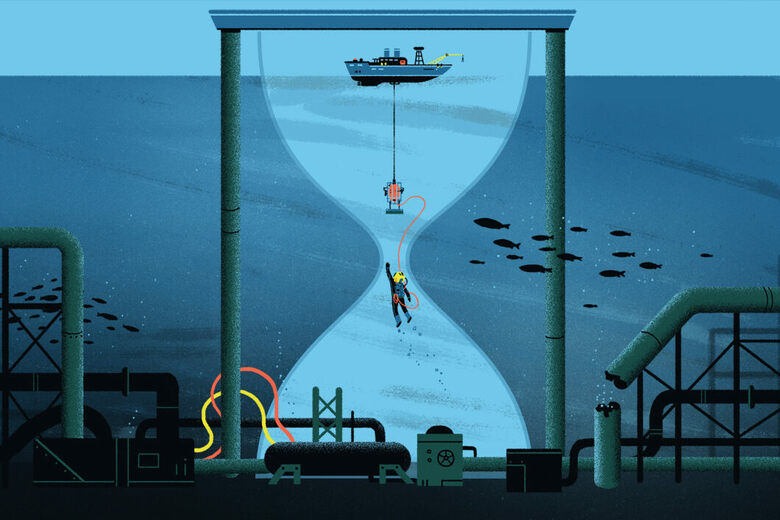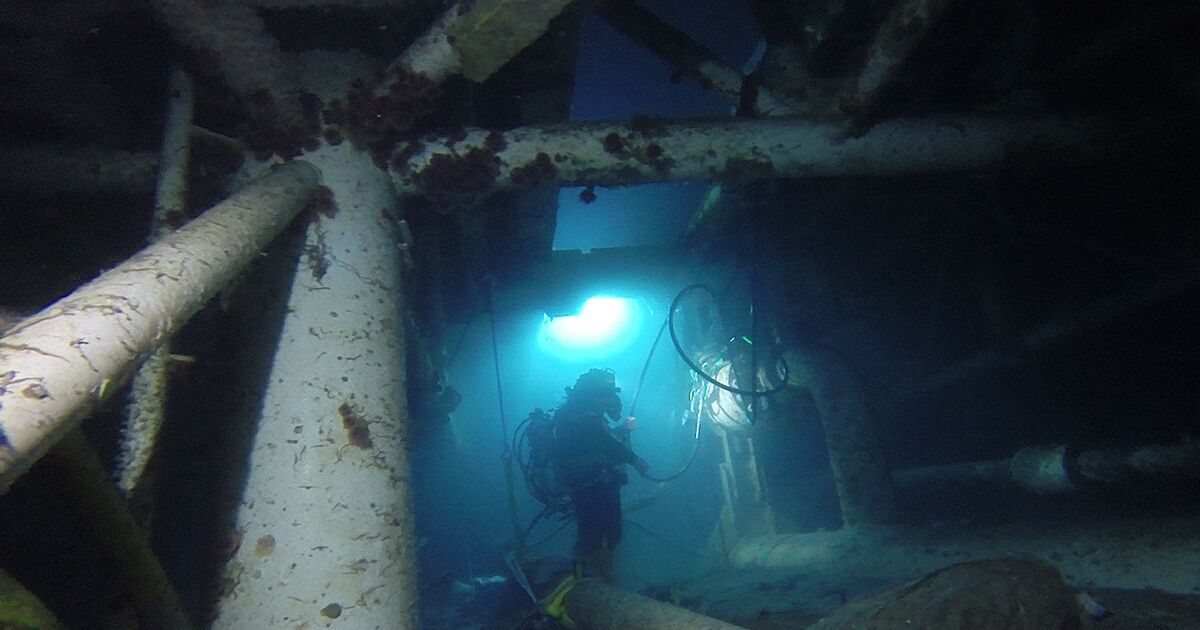
In the dive industry, saturation diving is a term referring to diving to depths beyond 100 feet where the air pressure at that depth is greater than the atmospheric pressure.
With each additional 10 feet of depth, the air pressure decreases by 1 bar.
This means that a diver at 100 feet would require a pressure equal to or greater than 101.3 bars (1.013 MPa) to remain conscious and safe.
Saturation diving is one of the hazardous jobs that anyone could take.
However, commercial divers consider this as the most unconventional form of their living.
It requires divers with intense experience and skills who can handle the immense training.
Divers would put under tireless situations and activities underwater.
This may sound easy to some divers, but to some, it is not.
This job is very demanding, full of pressure and challenges.
However, these circumstances would be worth it because this job may offer a handsome amount of salary.
Read articles: How does a Rebreather Work?
Read articles: Naui vs.Padi(What’s the best for you?)
But don’t get excited about how much do Saturation Divers make.
Before considering this job, let us show you some of the info regarding saturation diving.
This may help you decide if you will pursue this career or not.
So, continue to scroll down and read the details.
What is Saturation Diving?
Saturation diving is a diving method that requires a diver to work under the water for an extended period. It is considered one of the most progressive systems of commercial diving.
In the early years, regular diving jobs require divers to return to the surface to regularize pressure after the dive. There are specific tasks for divers that need them to go back many times under the water. To save time, effort, and resources, saturation diving was invented.
Saturation divers have immersed the water in a small pressurized chamber. They lived there for a couple of days or weeks, depending on their tasks. Using a diving bell, they are lowered to the depths and do the job.
Additionally, teams of three or four were in the chamber. Their working schedule would rotate between six or eight hours each. Saturation divers work underwater to inspect structures, handle nondestructive testing, maintenance and sometimes do some ocean floor checking.

Detailed requirements to become a Saturation Diver
If the above job description of saturation diver sounds very appealing to you, let us now discuss the condition before applying for the job. Before checking these requirements, be sure that you are already a certified commercial diver. If not, you have to undergo proper training before becoming certified.
Furthering your diving career would take time, effort, skills, and patient. So be sure to have these qualities. Also, there are only three schools in the whole world that provide training and certification. Carefully choose and do everything you can to succeed.
After being certified and had intense training, continue pursuing your dream to become a saturation diver. These are the requirements that you must have.
1.You must have professional commercial diving certification.
As mentioned, you will have certification after training. Also, you must undergo training from a reputable school that offers high-quality diving training and education. Learning from the expert means getting the best result and knowledge.
2.It would be best if you had years of professional driving experience.
Long experience is also one of the keys to be a saturation diver. The experience could speak on how long the diver’s exposure to underwater activities. Specifically, offshore diving, divers who support the oil and gas activity’s study and construction area, have intense exposure, which could be a big plus. Your diving experience could make your training life easy.
3.It is also best if you have experience with mixed-gas diving.
Mixed-gas diving is a substitute to diving with compressed air that allows you to breathe gas other than air to greater depths. When you become a saturation diver, you will also be exposed to mixed gas, and adjusting to such activity wouldn’t be such a big problem if you have experience in it.
These three detailed professional requirements would be a great help in becoming saturation divers. However, you can also learn additional professional requirements once you apply to a different company. They will set other requirements, and all you need to do is to fill them in.
Saturation diver salary
Bear in mind that there is no shortcut to huge money. Time, effort, patience, and much experience will occur before having a handsome amount of pay. Working as a saturation diver requires you to work within a chamber atmosphere for an extended period.
And if a saturation diving job tempts you regardless of the job description, requirements, and expectations, you must love this field. This unique path would be worth all the hassles because, generally, this job offers considerable pay per month.
Approximately, saturation divers make $45,000 – $90,000 every month and $500,000 annually. Remember that the pay edition includes how depth the work is, and they call it ‘depth pay.’ It could be approximately $1 – $4 per foot deep. Also, they consider air and mix gases for the pay.
Additionally, after you launch as a saturation diver, you can expect to receive $100 – $300 every day. Others offer $300 – $600 daily. Remember that aside from depths, the income also depends on the task’s duration and diver’s tenancy. Your time and physical pressure will receive extra pay.
Furthermore, here are some of the requirements that consider in paying a saturation diver.
Salary also varies on the company and its capacity to pay the saturation diver.
The demand for the task also affects the pay. The harder it is, the higher the rate would be. The payment also considers how complex tasks are and the additional depth and days.
Conclusion
If you are going to ask how much do saturation divers make, well, they make many bucks. Thanks to the risk and hazardous working environment, they are entitled to receive more than anyone else. The amount of salary that saturation divers receive also depends on their experience, training, and certifications. Those factors are considered as their ‘appraisal’ to offer them a handsome amount of salary.
All in all, saturation divers are well compensated. Aside from handsome rewards, expect adventure and excitement. You will enjoy your work under the deep blue sea.
